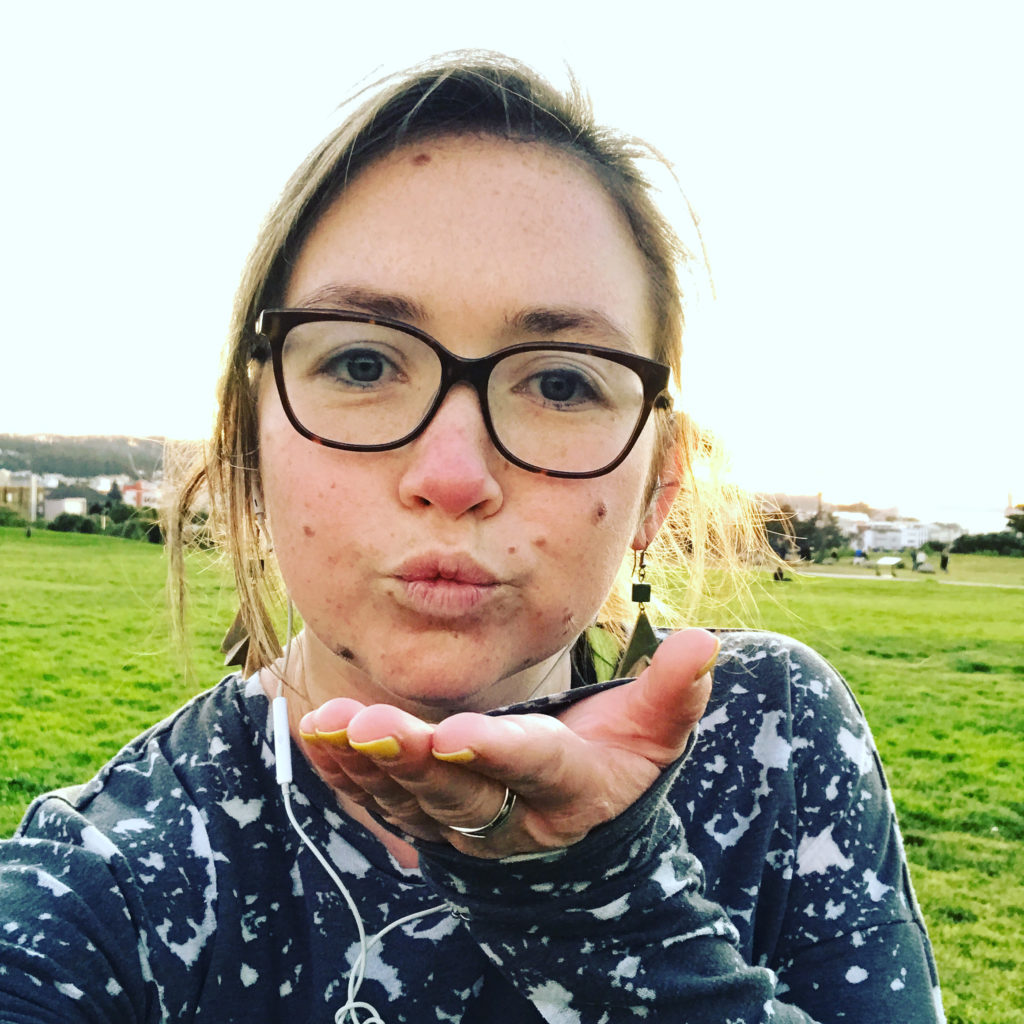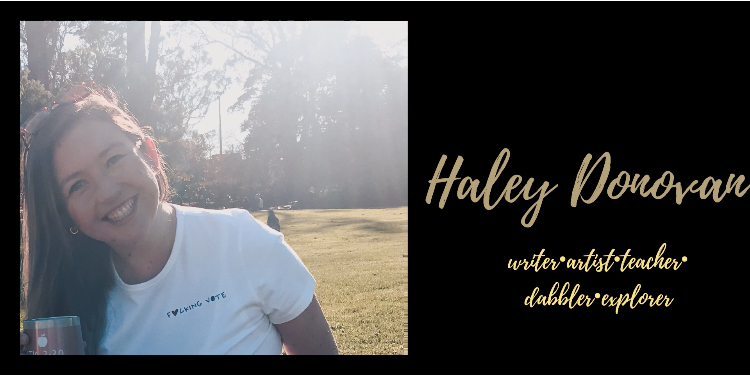Dear teachers across the land,
First of all, you are incredible. You are strong. You are invincible. You are the bomb diggity. But hopefully, you don’t need me to tell you that, to know that it’s true. What I’m here to tell you today is to implore you: take care of your precious self this fall. And this year. And every year after that. But especially now. We feel the nation begging us to put our own comfort levels aside so that we can step up and do what we do best again (adjust, and then make the magic happen), but no matter how this fall goes, we need to do what we sometimes *don’t* always do best: which is take care of ourselves.
Teaching is “who we are”
If you’re anything like me, when you describe yourself, the word “teacher” often pops into conversation pretty quickly, does it not? Anywhere from my Instagram to my dating profile, the word “teacher” flashes across my identifying features. That is, because, teaching isn’t just our job. We pour so much of ourselves into our work, it becomes our identity. It fills our pores and runs through our veins. Our kiddos’ struggles become our struggles, our classroom communities become part of our heartbeat. That is the beauty of a teacher’s work, and why, so many of us, year after year, roll up our sleeves, embrace the sleepless nights and the whiteboard-marker-covered-arms lifestyle, and hurtle ourselves into another year of playing a role that encompasses eleven regular jobs (teacher, nurse, counselor, mentor, administrative professional, magician, chief problem-solver, book order representative, scheduler, entertainer, diplomat), for the salary of a fraction of one standard job.
We love our kids, we love our communities, we love the dynamic world of education. But, as I certainly don’t need to explain to you, sometimes it comes at a cost– putting our own well-being on hold for a good nine months, to weather the stress, the unpredictability, and quite frankly, putting everyone’s needs before our own, because “that’s what teachers do.”
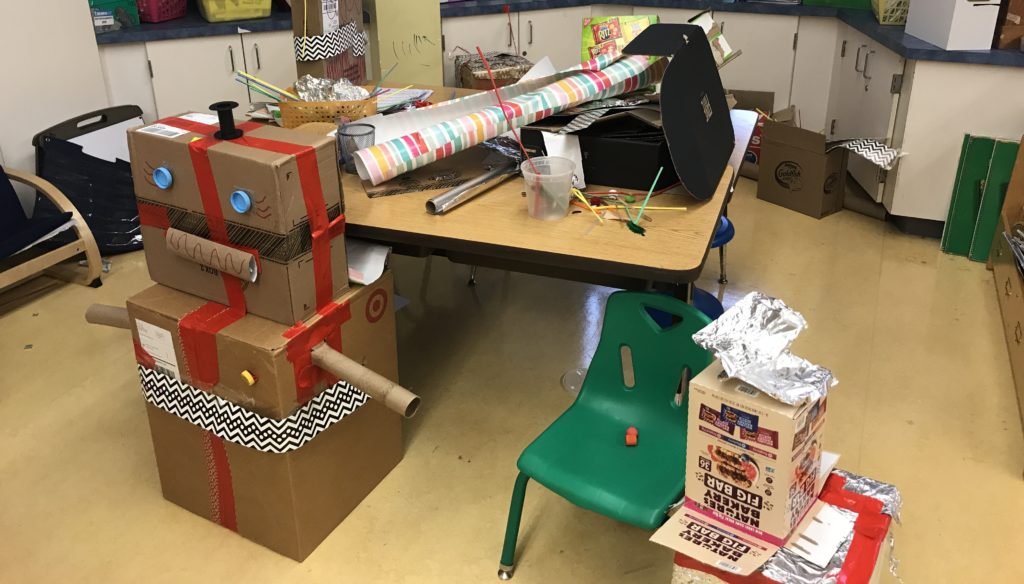
My humble plea
I’m here, on this pandemic morning to urge you to make a commitment to yourself that this year, that aspect of it will be different. Even if it’s just a fragment of different. Because our bodies and our minds are really the only homes that we have, and we owe it to ourselves to keep them intact– all the time, but especially in the wake of a collective trauma.
Before we are pitched into a fall with far more questions than answers, problems that exceed not only our bandwidth but our expertise, and a system of learning that presents its own set of inequities, I want to ask you: what are you going to do to ensure that you hold your well being sacred to yourself? As educators, we always hear “you can’t pour from an empty cup.” But what they fail to tell us is that you can’t do ANYTHING from an empty cup. Not only can you not pour from an empty cup, but it is literally dangerous to allow your cup to reach empty. Because with the emptying of your cup comes the deterioration of one’s stable ground. Not only do we need that to teach, we need it to survive.

Once upon a time, 2019-20
It wasn’t until last academic year that I truly, physically, and mentally learned the severity of what that means. I share my story because I want other educators to know the importance of taking time for themselves, for students so that they have us as the best teachers they can, for teacher’s families and loved ones so that they don’t have to see you suffer, and for society, so that they perhaps think twice next time they feel a twinge of impatience when they’re waiting on an answer from a teacher. But mostly because I wish there was a teacher who had told me this last year, and if I can make even a sliver of a difference for someone, then count me in.
At the beginning of last academic year, during teacher PD week, our administrator had us write on a heart-shaped cutout what we planned to incpororate into our year for self-care. I was bright-eyed and ready for it to be “my year.” More experienced, more tenured, another degree behind me, it was Go Time. I scrawled fancifully across this heart proclamations of what I intended to do that year: exercise more. Write once a week. Spend more time in nature. Family dinners.
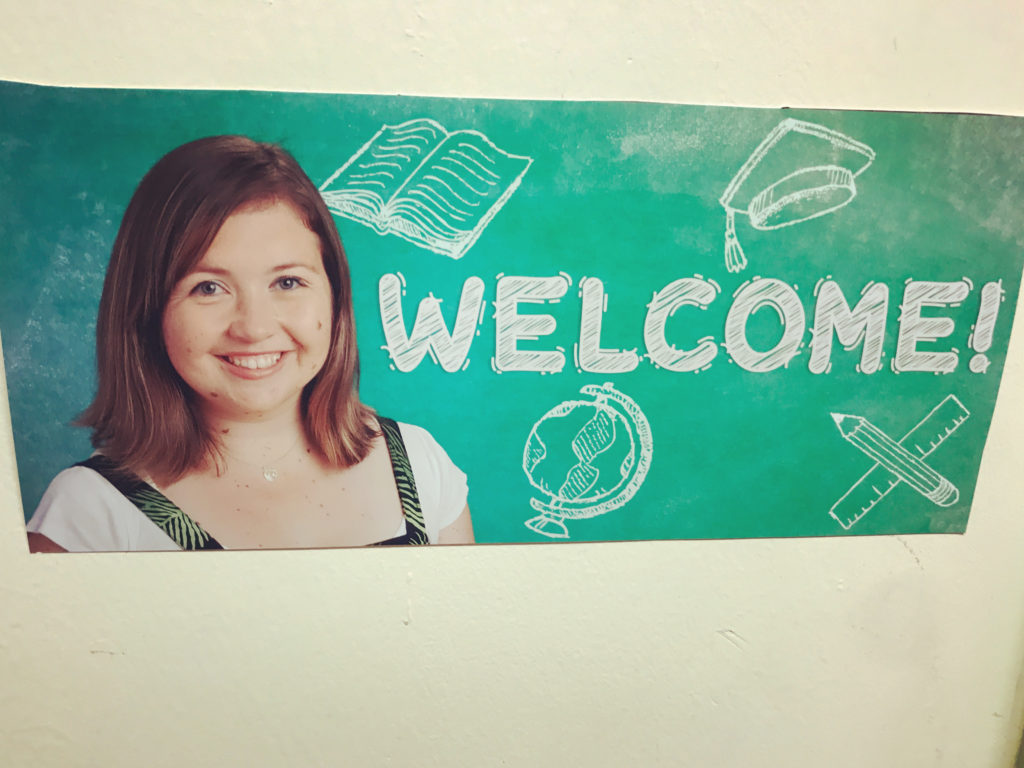
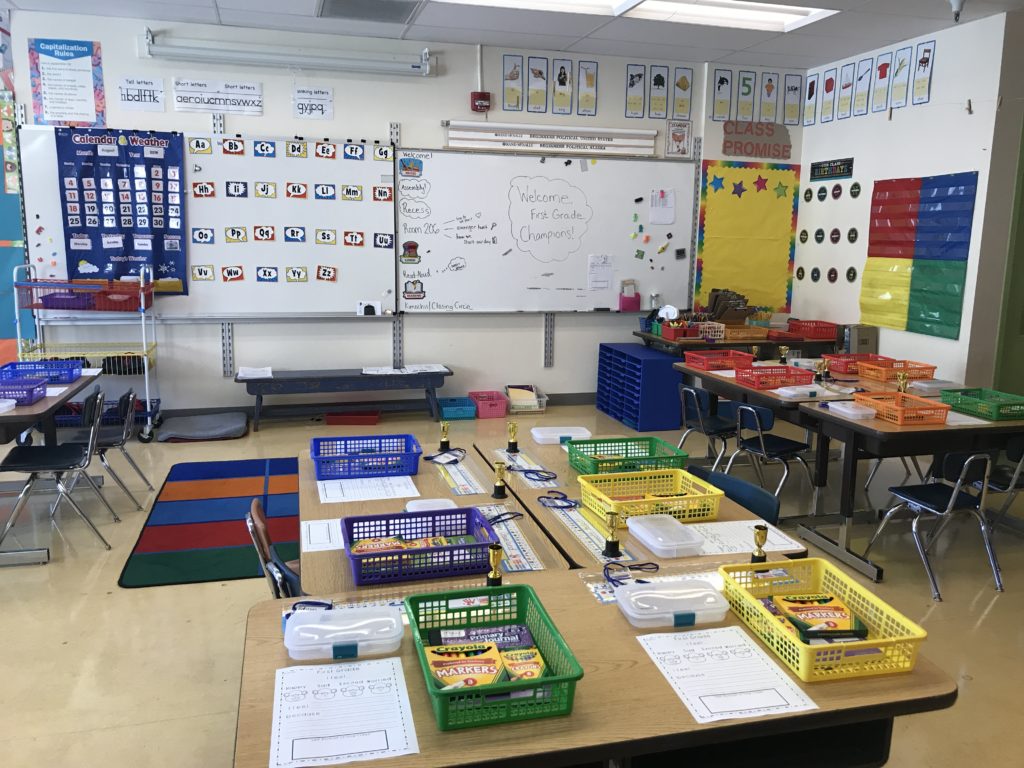
Fast forward five months. I’ve dropped fifteen pounds. I’m getting about four hours of sleep per night. I’m in my apartment, shuffling through a tote purse, and at the bottom I find a notebook I hadn’t used in quite some time. Folded into the notebook with crinkles all over it, completely smushed up and covered in purse lint, was the heart, with all these self-care promises written on it, completely frayed and neglected. By now I’m assuming you can predict my metaphor, and by now I’m assuming that you can take a hearty guess (pun intended) that none of those self-care things had happened during those five months prior. So what happened instead?
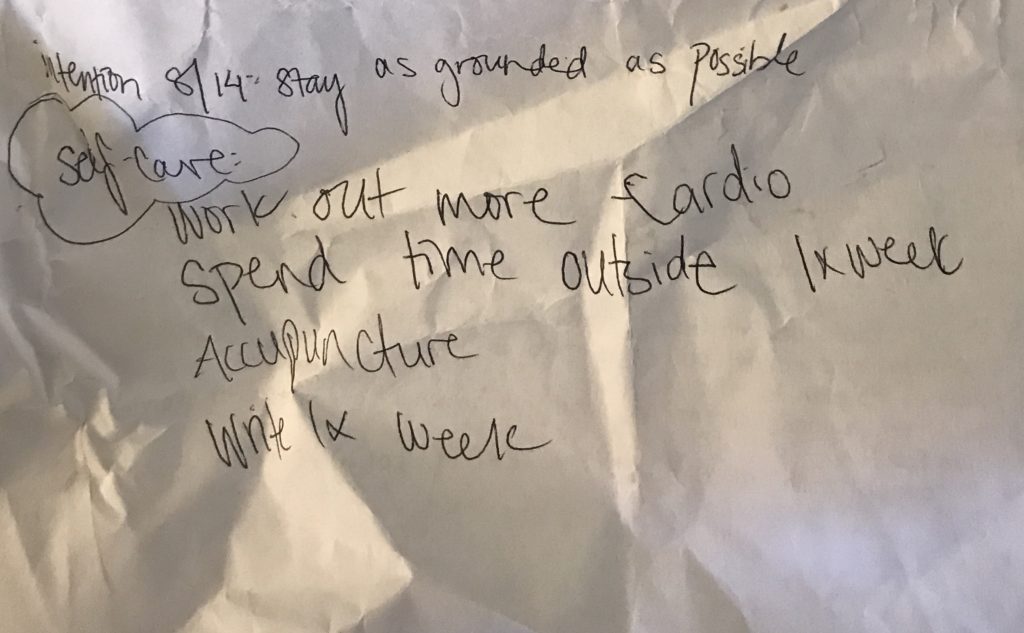
Instead, I had had five months of working nonstop and completely neglecting my physical and mental health. I began the school year way in over my head. You see, we open our classroom doors to these beautiful, cherished, absolutely spectacular little ones, and with them comes all of their past traumas, their innocent interpretation of the world around them, their gorgeously unique personalities that have never had an opportunity to interact in this specific combination of others. You combine that with the general stress of what teachers are asked to do, the many demands that are put on educators all year long from all different entities and parties, and you introduce the devastating lack of trauma-informed training during teacher preparation programs, mix in a little bit of the ratio of one teacher in the classroom for every full classroom of kiddos, the tremendous difficulty of getting students the dire support they need in the current framework of public education, and you get a teacher who feels like they are getting put through a wood chipper on the daily.
Slippery Slopes
Now, if this were happening in many other fields, first of all, we all know it wouldn’t. Educators out there, am I right? 😉 Kidding. But if this were happening in many other fields, the natural response would perhaps be to take some extra long lunches, maybe take a few days off, take a long weekend, speak to your boss about how you’d like to reevaluate your current work load and perhaps put your heads together to see if you could collectively tinker with some priorities or deadlines, and you’d make it a priority to eat well, exercise consistently, and work in a healthy amount of self-care. I don’t have to explain to teachers how much of the first part of that clause is, well, either “not an option,” or just makes things more exhausting. (If you’re someone who works outside of education, consult a teacher friend and ask them why the part that doesn’t involve self-care sometimes just doesn’t feel feasible). But the self-care part? That’s perhaps the trickiest term in this whole set of prose. Because while self-care is perfectly, in theory, well-within the reaches of all teachers, we just either forget that it is, or we completely sacrifice it, because we can “just push through” until winter break. Until spring break. Until Summer break.
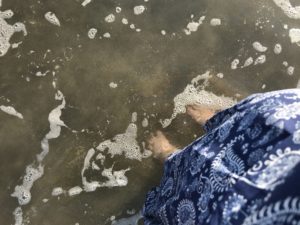
We fall prey to phrases like “everyone has a hard class sometimes” or “You’re such a strong teacher, you can handle this,” and somehow forget that those aren’t mutually exclusive of drawing healthy boundaries and implementing a FAITHFUL, steadfast practice of taking care of ourselves, our wellness, and our needs.
Here’s the thing: neither our bodies nor our minds “evolved” to a place where tending to them could just be put on hold for weeks, months at a time. There is no such thing as a factory setting of our wellness that’s just reserved for teachers and can somehow magically operate with only the appropriate amount of maintenance and care for 2 1/2 months out of the year, and otherwise go completely neglected and remain unscathed.
The nitty gritty
I had, what they’d call in edspeak, a “tough year.” Without going into specifics for confidentiality purposes, what I can say is that is devastatingly difficult how impossible our current (or should I say decades-old) educational system has made it for teachers to serve all their kiddos in the ways that urgently need specialized attention. It is also a travesty how hard teachers are expected to work and how scarce it is modeled for us to actually put boundaries into place. The specifics I can, go into, however, is what happens to your body and mind when you forget to channel some attention towards your own well-being.
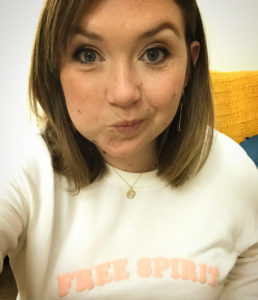
From September through February, I basically forgot to eat. I’d rush out the door in the morning, maybe grabbing a protein bar or a cup of coffee if I felt I could spare the 2.5 minutes. I’d dash into my classroom, feel as if I was having an out-of-body experience for the following six hours, briefly interrupted by a “lunch break” that often consisted of stuffing a roll of sandwich meat into my mouth and a handful of goldfish crackers, before frantically trying to finish all of the half-started tasks I had begun but somehow felt was unable to finish (a telling symptom of what was developing, as I would later discover). I would stay at work until 7pm most days, half the time just pacing around my classroom rather than actually being productive, because I was trying to shake off whatever stress factors were seeping in from all sides. I would take my work home with me, work on behavior charts from cafes, and throw my lesson plan in bed next to me, where it would occupy the space beside my pillow until my alarm went off. Meanwhile, the people who loved me were begging me to slow down. I was aggressively attached to this myth, however, that I “just couldn’t.”
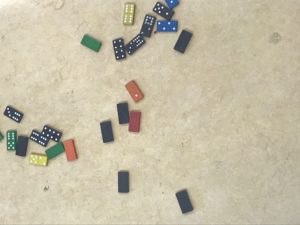
I was rapidly developing two things: secondary traumatic stress brought on by a term called “compassion fatigue,” and teacher burnout. Both of those factors combined, and already being an individual susceptible to higher-levels of anxiety, kicked me into what’s called survival mode. Survival mode occurs when your brain literally is kicked into “my survival is at risk” territory because so much stress is being pumped through your body that your brain registers an immediate threat. While the brain’s alarm bells are ringing, its primary attention is being driven to the brain stem, which is the part of the brain responsible for keeping your body alive. Functions such as heart rate, breathing, digesting foods, and sleeping. When your brain is in survival mode, many of the other parts of your brain are temporarily suppressed, such as those related to executive functioning and emotional regulation. So not only do you feel like your life is falling apart, you have massive waves of emotion that come along with it. You can’t teach well–nor maintain important relationships that matter– when you feel like you are riding a roller coaster and your body is rebelling against you and taking you by nasty surprise every twenty minutes. It is, simply put, a disaster.
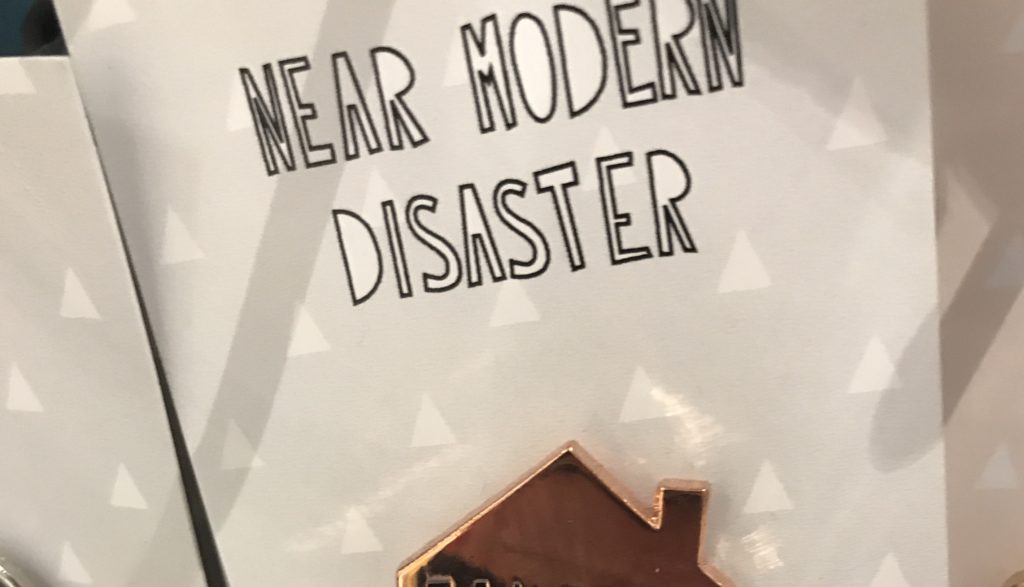
By February, I consulted a doctor. I knew something wasn’t right. Little things like putting my contacts on felt comparable to doing my taxes. I felt super fidgety. I was waking up at 3 in the morning each morning, and then unable to get out of bed when my alarm went off at 7. I was having a difficult time making eye contact with people, and for those who know me, know that’s off. The doctor looked at me and said “you’re just stressed out.” With all due respect, sir, I beg to differ. Being late to a meeting and spilling coffee on yourself is stressed out. Having tight deadlines and having your dishwasher overflow with water on the way out the door is stressed out. Working two jobs, or having to pick children up from after school programs, that is stressed out. Being in grad school, that is stressed out. This was unlike anything I would have ever been able to think up.
TL;DR: You don’t want this to happen to you. I repeat, you do not want this to happen to you.
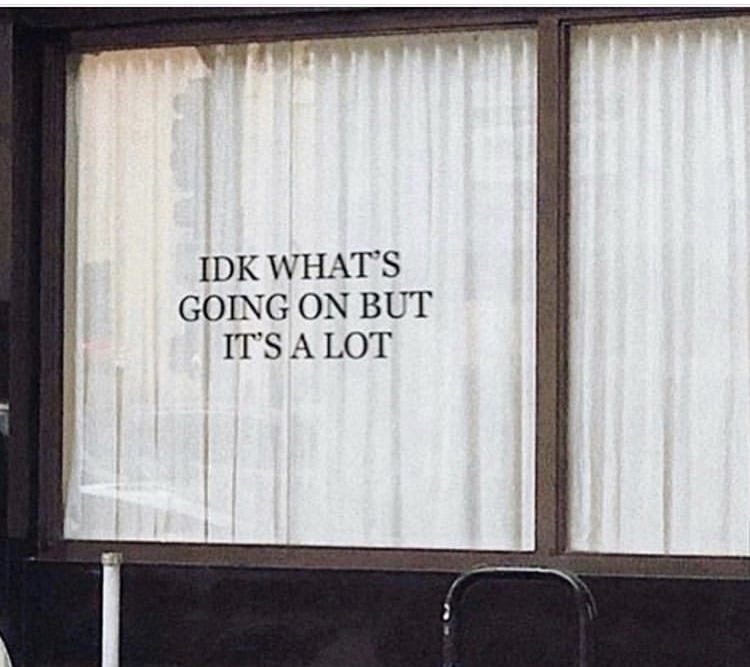
When the going got rough
For a time, I grieved all of the ways in which my stress had seeped into other areas of life, calling it “collateral damage.” I would ruminate and cringe and be taken with sorrow at how I was showing up differently for my friends, how I was always in a terrible mood, all the classroom ideas I had and that I knew wouldn’t ever come to fruition, how I failed to express gratitude towards my friends, and how poorly timed the potential buddings of a relationship turned out to be, with someone who just carried that *the-universe-had-us-cross-paths* je ne sais quoi about it. I was in dismay about people I had snapped at, at the money I’d spent taking lyfts and ubers or doordash, trying to cut corners because I had just trashed my ability to complete necessary circuits to keep myself rested, fed, and taken care of. I was in so.much.pain, and was in way over my head.
And then the pandemic hit. I was still carrying the grief from my secondary traumatic stress and burnout, and was also hit with the same colossal shock that the world was hit over the head with overnight — the sheer horror that all of a sudden our lives as we knew it were going to be flipped on their heads, and there was a very real public health danger looming over all of us, that could strike loved ones, shake our economy, and leave people in absolute disbelief that this could actually be happening. And teachers, you know how hard it was to realize that we weren’t going to get to say goodbye to our kiddos in person. That crisis learning was going to dominate our lives for the next eight weeks, and that we’d be able to see our coworkers over zoom, but that was it.
The pandemic plus the secondary traumatic stress from earlier on in the year was enough to serve as the ultimate tipping point. And then I had something new to grieve, if even only temporarily: my well-being, my sense of self, and any semblance of groundedness. My physical and mental wellness took an EXTREME hit. I’ll let you conjure up your own imagery in your mind, but obviously this story has a happy enough ending, if I’m “still standing to tell the tale.” And yes, I have MANY happy days, as happy as someone can be within the midst of a pandemic. But it didn’t come without a grueling amount of reparation work put in.
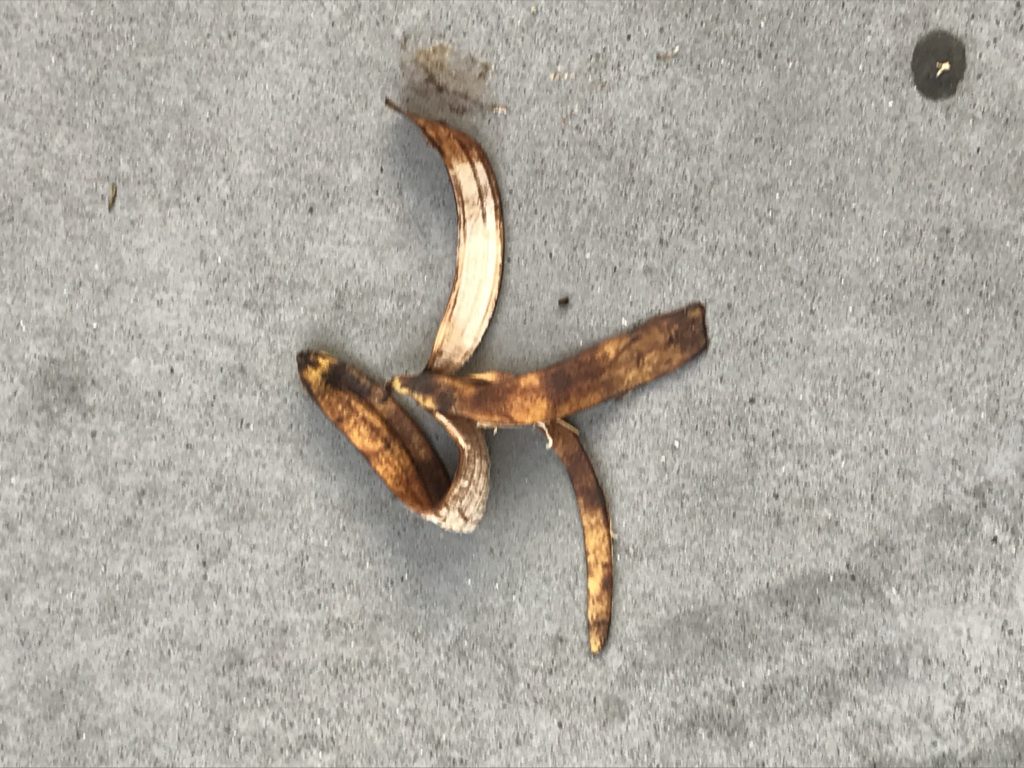
Where you & self-care come in
What I want to highlight to you, is that we are still in the midst of this collective trauma, being in a global pandemic, and it is therefore imperative that you are gentler than gentle with yourself, and assertive as hell in guarding yourself from wearing yourself ragged.
Every person who I’ve shared my story with has had a similar reaction: “Wow. I mean, I could tell you were shouldering so much, but you just kept on going and looking back at us with a convincing smile or look of stoicism.” Which is when it dawned on me: we are the only people who can draw our own lines, politely decline, and proactively keep ourselves well. The people we love can ask if we’re okay, but they can’t possibly be asked to mind-read.

Last year, I strived for stoicism. I strived for “pushing through.” I strived for “hanging in there.”
But you know what? Screw stoicism. Screw being “just phenomenal.” Screw being the best. Because guess what. You already are the best. You already are phenomenal. Do not fall into the trap of normalizing martyrdom.
Normalize taking care of you.
Normalize taking care of yourself. Normalize saying no. Normalize getting a good nights sleep. Normalize knowing what’s best for yourself. Normalize setting boundaries. You are the only person who can do that for yourself. And when you set boundaries for yourself, you illustrate a gorgeously healthy example for others to do the same. There is nothing selfish about saying no to something that will outstrip your bandwidth. And from a pragmatic point of view, you sure as heck can’t teach when all you can do is gaze out the window blankly while minutes fly by because you’ve already tapped out all your resources.
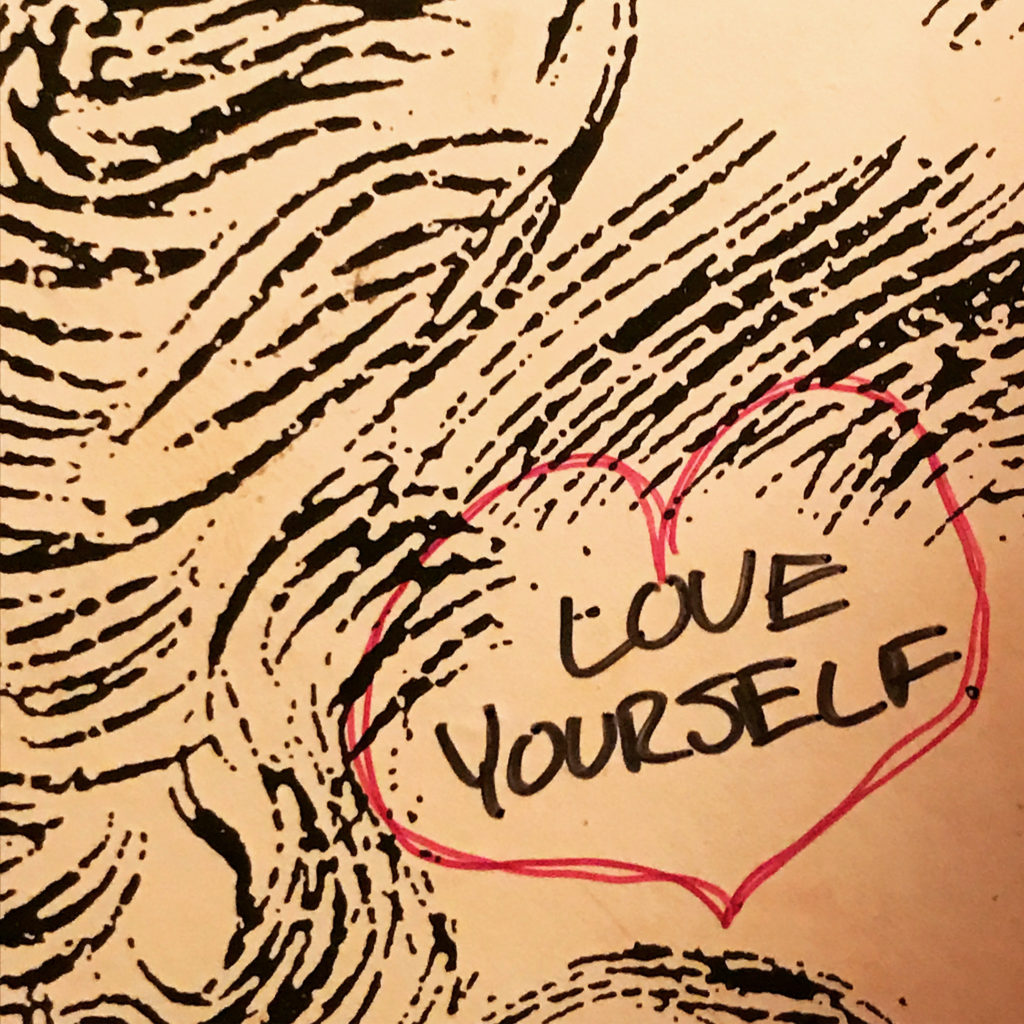
Let me be very clear: this was no one’s fault. Teaching, in its essence, is a joy. We get to watch kids go up up and away with reading. We get to hear students’ unique, unobstructed, unjaded outlook on the world. We get to witness students navigating social relationships for the first time, and articulate how someone showed a “great example of perseverance”. My rapid decline was not caused by teaching. It was not caused by any *one* thing. It was exacerbated by the very tragic truth that society at large expects teachers to go above and beyond and then just grin and bear it and many dedicated educators internalize that. It was exacerbated by the fact that there is very little support designed to come to teachers’ aid when circumstances arise that need a more specialized lens. It was exacerbated by the fact that selflessness is glorified in this field. And, I also could have slowed down. I could have set some boundaries. I have a very caring and supportive administrator. I work in one of the most exceptional schools I’ve ever encountered. I am part of an all-star teaching team who boast an abundance of humor, compassion, professionalism, and empathy. Our community of families always goes to great lengths to make us feel appreciated. No one was asking me to fall asleep next to my lesson plan book. No one specific factor is to blame. Blame doesn’t do anyone any good. What does do us good is examining events and seeing what we can learn from them. And my 2019-2020 can teach us this: it is a rallying cry for the importance of prioritizing your mind, your spirit, your body, and your well-being.
You matter. Make sure you matter to yourself!
I used to think that self-care was something that purely involved face masks and bath salts and pedicures. Don’t get me wrong. All of those things are absolutely positively LOVELY. But in recent months, I’ve learned that self-care is just that: taking.care.of.yourself. Yet, in this work-oriented, ambition-focused culture, the whole idea of TRULY taking care of oneself is downright radical. The fact of the matter is, for some people self-care is yard-work. For others it’s yoga. For some it’s brewing a cup of tea and just sipping it and doing nothing else for ten minutes. For others it’s hopping on a stationary bike. For some it’s writing, for others it’s brushing up on tarot cards, for some it’s reading, there is no formula for it, except that it has to be in the name of your well-being.
So, I’m asking you: what is your self-care? What are you planning on doing this fall, and how often are you planning on doing it, no matter what else comes up? Write it down somewhere and don’t let that paper heart get crumpled up somewhere. Tattoo it on your heart. Bear it proudly and fiercely and encourage others to do the same.
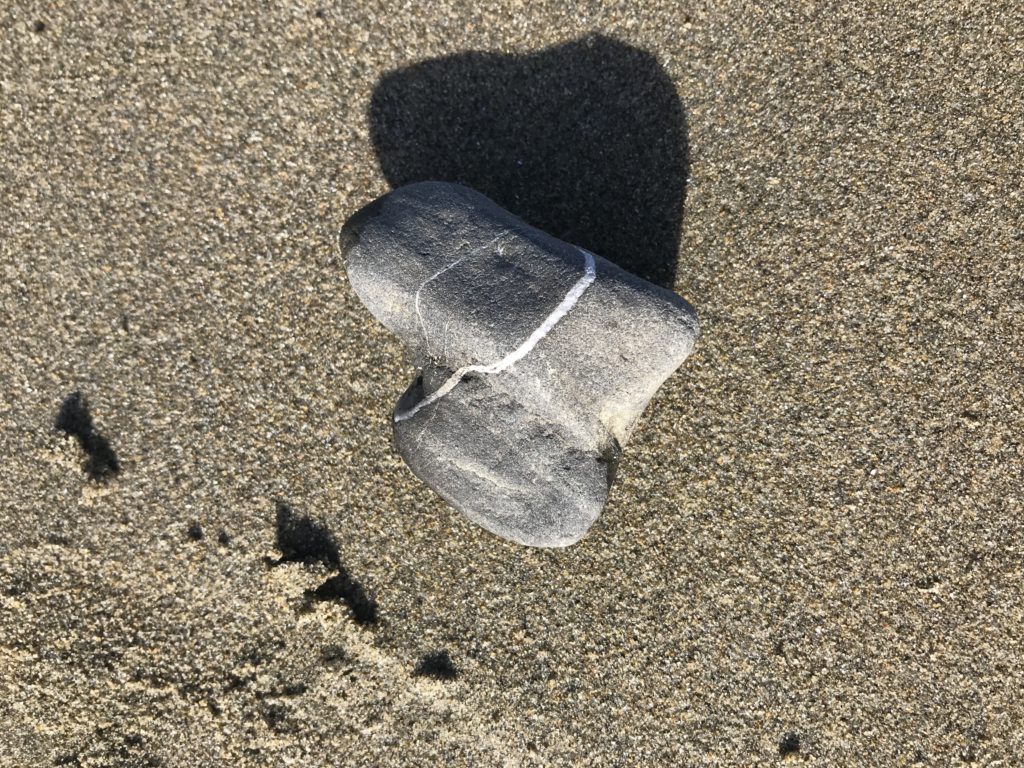
Do this for your kiddos. Do this for your loved ones. But most importantly, do this for yourself. You are the only you there is. We are all in a collective trauma right now, where many of us are likely being impacted on a physical and psychological level in ways that we’re not even aware of. It is not just important, it is CRUCIAL to take care of ourselves. Exercise self-compassion. Lean on each other. Speak up when you’re feeling shaky.
And if you’re not an educator, I hope this still resonates with you, and that you take the importance of taking care of yourself– this fall, and forever– to heart. We are ALL worthy of self-love and self-care, and we’re the only ones who can make it happen. So this fall, and this winter, and this spring, and the falls and winters and springs after that, keep an eagle-eye watch on the levels of that cup we all have, that we’re supposed to be pouring or not pouring from. Be vigilant, and be an ally to yourself. And if you ever need anything, know that I’m here for you.
xoxo,
Hales
